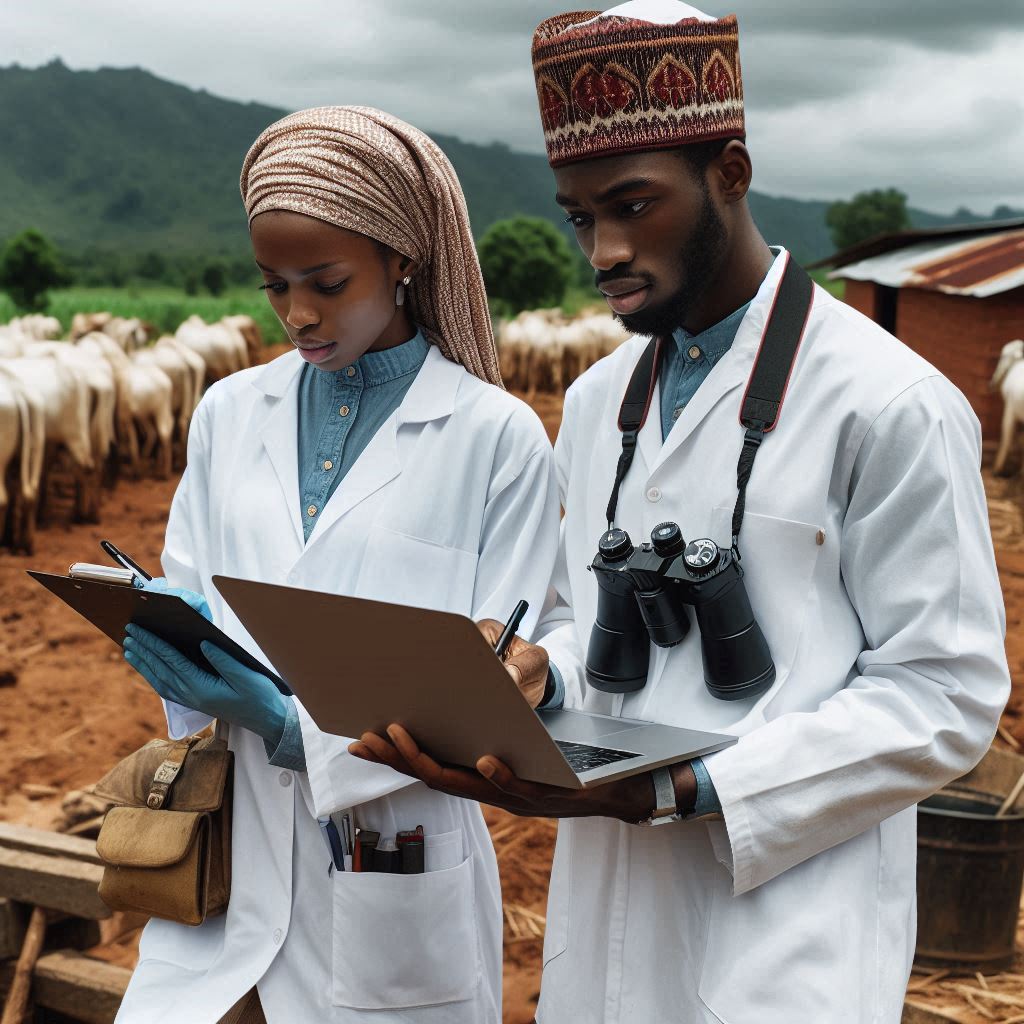Introduction
What is Anthropology?
Anthropology studies humans, their societies, and cultural development. It examines human behavior, traditions, and evolutionary aspects. The field covers:
- Cultural Anthropology
- Archaeology
- Biological Anthropology
- Linguistic Anthropology
Why Study Anthropology in Nigeria?
Studying anthropology in Nigeria offers many benefits. Here are key reasons:
- Cultural Diversity: Nigeria’s rich cultural diversity makes it an ideal place for anthropological studies.
- Understanding Societies: It helps understand societal structures and cultural practices.
- Preserving Heritage: Anthropology aids in preserving Nigeria’s historical and cultural heritage.
- Problem-Solving: Anthropologists contribute to solving social issues by understanding community dynamics.
- Career Opportunities: It opens career paths in academia, museums, and NGOs.
Anthropology provides essential tools to appreciate and protect Nigeria’s cultural wealth. Students can make significant contributions to society through this fascinating field.
Importance of Studying Anthropology
Enhancing Critical Thinking Skills
Studying anthropology sharpens your critical thinking skills. You learn to question assumptions and analyze human behavior deeply.
Anthropology encourages examining different cultural practices objectively. This discipline teaches you to evaluate evidence and draw well-founded conclusions.
You develop the ability to understand complex social issues from various perspectives. Anthropology enhances your problem-solving skills by promoting analytical thinking.
Understanding Nigerian Culture and Society
Anthropology helps you appreciate the diversity within Nigerian culture. You learn about the rich history and traditions of various ethnic groups. This knowledge fosters respect and unity among diverse communities.
By studying anthropology, you gain insights into Nigeria’s social structures and practices. This understanding helps in addressing societal challenges effectively.
Anthropology provides tools to analyze contemporary issues, such as migration and urbanization. It aids in preserving Nigeria’s cultural heritage and promoting sustainable development.
Practical Applications
- Conducting ethnographic research to document local customs.
- Collaborating with policymakers to improve community welfare.
- Enhancing intercultural communication skills for global interactions.
Studying anthropology offers invaluable skills and insights for Nigerian students.
Read: Leading Communication Arts Departments in Nigeria
Tips for Nigerian Students Interested in Anthropology
When considering studying anthropology as a Nigerian student, there are several tips to keep in mind to make the most out of your academic journey
Research Different Subfields of Anthropology
Anthropology is a broad field with various subfields such as cultural anthropology, biological anthropology, archaeology, and linguistic anthropology. Take the time to explore these subfields to find which one aligns with your interests and career goals.
Seek Out Mentorship from Experienced Anthropologists in Nigeria
Having a mentor who is an experienced anthropologist can provide invaluable guidance, advice, and support throughout your academic and professional career. Reach out to professors, researchers, or practitioners in the field for mentorship opportunities.
Consider Practical Applications of Anthropology in Nigerian Contexts
Anthropology offers valuable insights into understanding human behavior, societies, cultures, and interactions. Think about how you can apply anthropological theories, methods, and concepts to address real-world issues and challenges within the Nigerian context.
By following these tips, Nigerian students interested in anthropology can enhance their academic experience, develop a deeper understanding of human diversity, and contribute meaningfully to the field of anthropology.
Read: Scholarships for Communication Arts Students in Nigeria
Recommended Resources for Studying Anthropology in Nigeria
As a Nigerian student of anthropology, it is important to have access to relevant resources that will enhance your understanding of the field. Here are some recommended books, journals, and websites:
Books
- “Cultural Anthropology: A Perspective on the Human Condition” by Emily A. Schultz and Robert H. Lavenda – This book provides a comprehensive overview of cultural anthropology and is a great starting point for students.
- “Biological Anthropology: Concepts and Connections” by Agustin Fuentes – For students interested in the biological aspect of anthropology, this book offers a detailed exploration of human evolution and adaptation.
- “Ethnographic Sorcery” by Harry G. West – This book challenges traditional anthropological methodologies and offers a fresh perspective on the practice of ethnography.
Journals
- Journal of Anthropological Research – This peer-reviewed journal publishes cutting-edge research in all areas of anthropology, providing valuable insights for students.
- Anthropology Today – This widely respected journal covers a wide range of anthropological topics and offers a global perspective on the field.
- American Anthropologist – As the flagship journal of the American Anthropological Association, this publication features high-quality research articles and reviews.
Websites
- Society for Anthropological Sciences – This website offers resources for anthropologists at all levels, including student-focused content and updates on the latest research.
- Anthropology News – This online publication features news, commentary, and analysis on current issues in anthropology, keeping students informed and engaged with the field.
- Wenner-Gren Foundation – This foundation supports anthropological research and offers grants, fellowships, and resources for students looking to further their studies.
It is crucial for Nigerian students of anthropology to stay updated on international anthropological research for several reasons
- Understanding Global Perspectives: By staying abreast of international research, students can gain insights into different cultural practices and perspectives from around the world.
- Enhancing Academic Credibility: Being knowledgeable about the latest developments in anthropology will enhance students’ academic credibility and make them more competitive in the field.
- Networking Opportunities: Accessing international research can help students connect with scholars and researchers from diverse backgrounds, opening up networking opportunities in the field.
- Broadening Research Horizons: International research can inspire students to explore new research areas and methodologies, broadening their horizons and enriching their academic experience.
By utilizing the recommended resources and staying updated on international anthropological research.
Nigerian students of anthropology can deepen their understanding of the field, enhance their academic skills, and contribute meaningfully to the global conversation on human diversity and culture.
Read: Career Paths in Communication and Language Arts

Overcoming Challenges in Studying Anthropology in Nigeria
Anthropology is a fascinating field of study that offers valuable insights into human behavior, societies, and cultures.
However, Nigerian students studying anthropology may face a number of challenges that can hinder their academic progress.
In this section, we will address common misconceptions about anthropology in Nigeria and discuss the lack of funding and resources for anthropology research in the country.
Addressing Common Misconceptions about Anthropology in Nigeria
- Many people in Nigeria mistakenly believe that anthropology is only about studying ancient cultures and civilizations.
- In reality, anthropology is a diverse discipline that encompasses the study of modern societies and their interactions.
- Another common misconception is that anthropology is not a practical field of study with real-world applications.
- On the contrary, anthropological research has been instrumental in addressing contemporary social and cultural issues in Nigeria.
- It is important for Nigerian students to educate others about the relevance and importance of anthropology in today’s world.
The Lack of Funding and Resources for Anthropology Research in Nigeria
- One of the major challenges facing anthropology students in Nigeria is the lack of funding for research projects.
- Without adequate financial support, students may struggle to conduct fieldwork or access necessary resources for their studies.
- Limited access to research facilities and libraries can also hinder the progress of anthropology research in Nigeria.
- Additionally, there is a shortage of qualified academic staff and mentors to guide students in their research endeavors.
- To address these challenges, it is essential for the government and educational institutions to allocate more resources to anthropology programs.
Basically, Nigerian students studying anthropology may encounter various obstacles during their academic journey.
By dispelling misconceptions about the field and advocating for increased funding and resources, students can overcome these challenges and make valuable contributions to the field of anthropology in Nigeria.
Read: Global Impact of African and Asian Studies Research
Opportunities for Anthropology Students in Nigeria
Studying anthropology opens up a world of opportunities for students in Nigeria. From career prospects to research opportunities, there is a wide range of possibilities for anthropology graduates in the country.
Career Prospects for Anthropology Graduates in Nigeria
- Anthropology graduates can pursue careers in research institutions, museums, and cultural centers.
- They can also work in government agencies, NGOs, and international organizations.
- Anthropologists are in demand in fields such as archaeology, heritage management, and community development.
- Graduates can also work as consultants for businesses looking to understand cultural aspects of their target market.
Opportunities for Research and Fieldwork in Nigerian Communities
- Nigeria is a rich and diverse country with over 250 ethnic groups, providing ample opportunities for research.
- Anthropology students can conduct fieldwork in rural and urban areas to study various cultural practices and traditions.
- Research topics can include gender dynamics, religious beliefs, and social structures within Nigerian communities.
- Collaborating with local communities is essential for successful research projects in Nigeria.
- Students can also work with NGOs and government agencies on projects related to community development and social change.
Most importantly, studying anthropology in Nigeria offers numerous opportunities for students to explore and contribute to the understanding of diverse cultures and societies.
With the right skills and mindset, anthropology graduates can make a positive impact in their communities and beyond.
Conclusion
In closing, Nigerian students interested in studying anthropology should keep in mind the following key points:
- Understand the diverse cultures and societies in Nigeria to expand your knowledge base.
- Develop strong research and critical thinking skills to excel in anthropology.
- Seek mentorship from experienced anthropologists to guide you through your academic journey.
- Engage in fieldwork and practical experiences to gain firsthand knowledge of anthropological practices.
- Stay updated on current trends and developments in the field of anthropology both globally and locally.
Despite the challenges you may face, such as limited resources or misconceptions about anthropology, it is crucial to pursue your passion for the subject.
Remember that anthropology offers a unique perspective on the world and can lead to a fulfilling and impactful career.
By embracing the diversity of cultures within Nigeria and beyond, Nigerian students can contribute significantly to the field of anthropology and make a difference in society.




